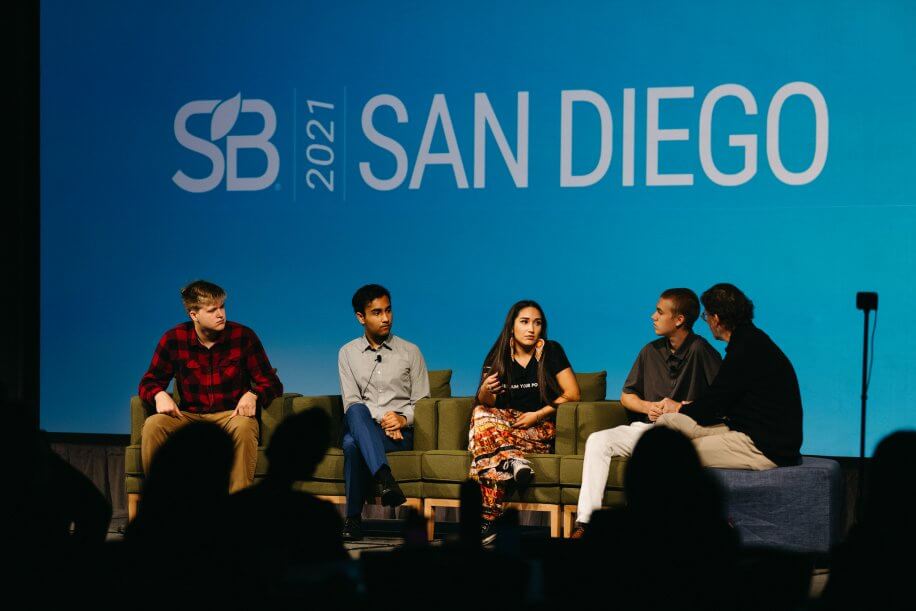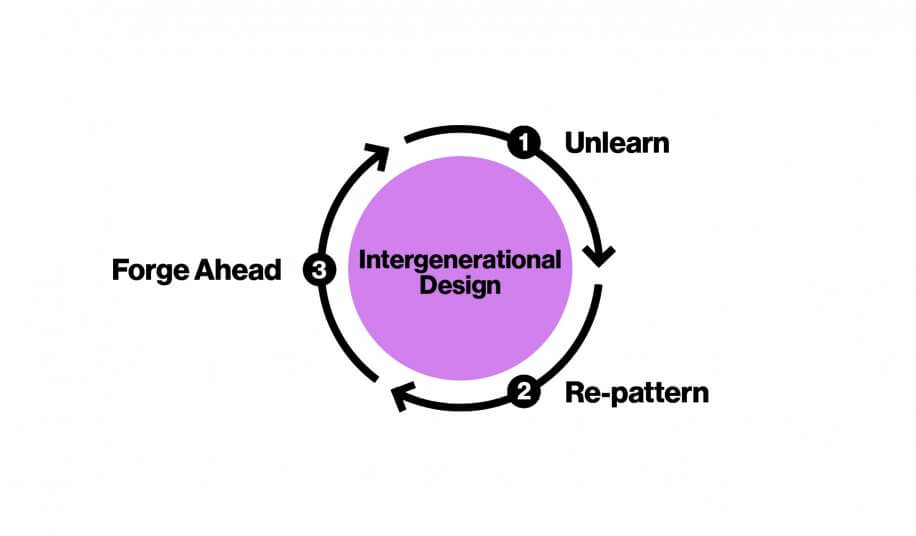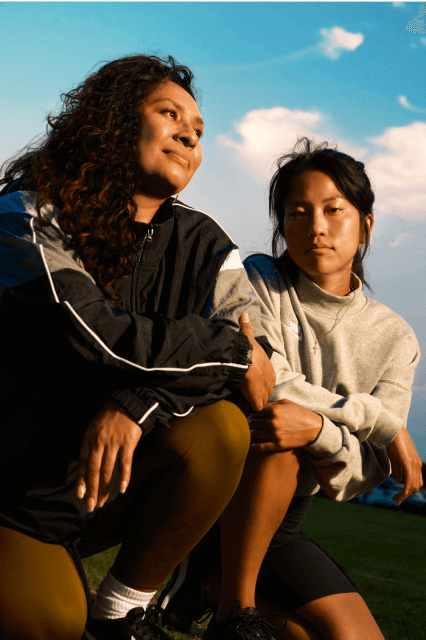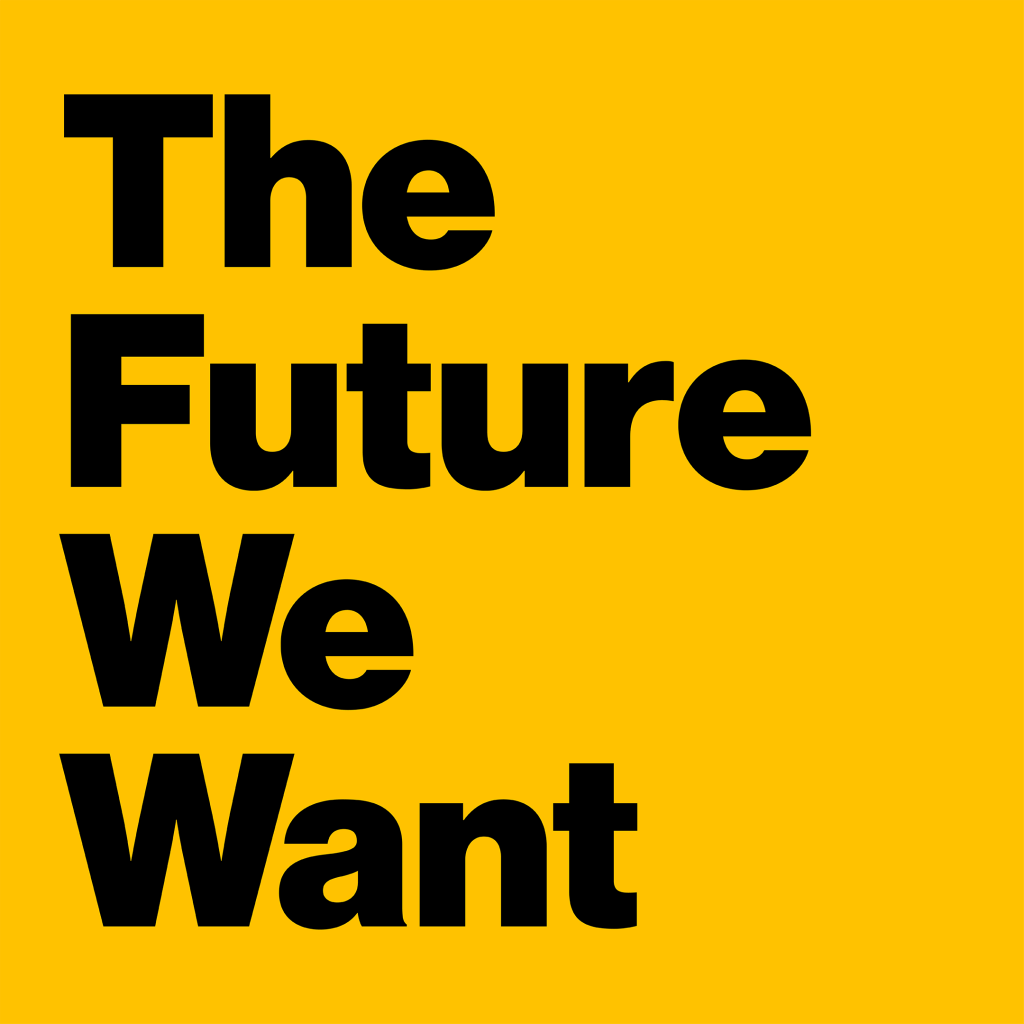Intergenerational Design for a Radically Better Future

Youth Activists Speak Truth to Brands
For Dilan Gohill, a teen living in Los Angeles, climate change isn’t a distant threat. It’s something he lives with daily. He’s been evacuated from his home more than once to flee wildfires, he’s experienced severe drought, and like many in LA he has respiratory problems. The effects of extreme weather and pollution in his community prompted him to take direct action, so he joined Extinction Rebellion. Today he’s a National Coordinator for XR Youth US, a youth-led arm of the global climate activist group.
Dilan along with Aidan Liss, a Co-Coordinator of XR Youth LA, Alexis Saenz, Executive Director of the International Indigenous Youth Council, and Joe Hobbs, a teen activist with Fridays for Future, joined BBMG’s Raphael Bemporad on stage at Sustainable Brands’ flagship event in San Diego in October to discuss what today’s youth expect of brands. Their call to action for corporations that want to design for a regenerative future is simple: invite us to the table.
“We may not be able to vote. We may not have a say in government. It doesn’t mean we don’t have a voice,” said Joe during the panel.

“There’s a conversation that needs to be had about what our generation – those of us in the room – are providing for the next generation,” Raphael said to the audience of brand leaders. “As Layla Saad asks of us: ‘What does it mean now to be a good ancestor?’ And if we’re facing a moment of intergenerational injustice, how might we choose something different?”
Today the vast majority of young people want to see radical change in our economy and our systems, and Gen Z is more than 3X as likely as Boomers to say they are greatly affected personally by climate change or global warming (38% to 12% in BBMG and GlobeScan’s latest survey).
For brands that wish to stay relevant with the next generation, it’s time to dismantle our old ways of working and invite diverse voices who can re-pattern how we think about the problems we face and how we work together to solve them. Voices like Dilan, Aidan, Lex and Joe.
Holding Brands Accountable
With increased access to information and heightened awareness of the flaws in our systems, the bar is rising on what next gen consumers expect from brands. Our old ways of working are not delivering breakthrough ideas to meet the moment.
Part of the challenge is that brands have a trust problem. “Greenwashing and false sustainability is hurting your business,” Dilan warned the crowd. “I’m 16, right? I’m in high school. Okay, like, all the people around me in my classes, we don’t trust you guys. Because the thing is if there’s one bad seed among [you], how do we root out everyone else? If there’s one company that is falsely saying they’re sustainable, but they’re not, that’s going to hurt every single other company around, because how do we know who to trust?”
“So many times we see greenwashing campaigns where the marketing budget was higher than the actual money put towards the issue!” said Aidan with a ripple of applause from the room. “Things like that take away from everyone else here at the conference. Brands should be holding each other accountable, because now consumers receive this information with so much skepticism.”
Love and Rage and Action
Youth may be skeptical and angry, but as they prepare to inherit the earth, they are also deeply motivated to find solutions to preserve our collective future. “Extinction Rebellion has a saying to describe this duality, and that’s love and rage,’” explained Aidan, “with the love part being coming together to deal with this anxiety and this trauma that the climate crisis has caused on young people. To connect with it and to process it together. But also on the rage side, to bring our emotions to bear on those who put us in the situation in the first place and to process it through action and trying to solve the problem.”
It was evident that the youth on the panel all hold that love and rage dichotomy. Yes, they are angry at the corporations that have exploited people and planet and endangered our future, but they also showed up in San Diego to say, we’re ready to work with you if you’re ready to get real about rethinking the way you do business.
“I think there’s been a recent trend of sustainability and being profitable, hoping those things coincide. And I think there needs to be a realization that we can’t wait for that,” said Aidan, reminding the brand leaders that in the long run it’s still better for business.
Taking a long view of success is at the heart of an approach that Lexi spoke about. When the International Indigenous Youth Council works with other organizations, they counsel them to indigenize spaces through ceremony, praying for the seven generations behind us and the next seven generations in front of us. This may be a tough mindset for companies used to thinking in terms of quarterly returns, but operating for short term gains is what got us to where we are today. Imagine if we developed business strategies to make both our ancestors and our grandchildren proud; isn’t that a better measure of success?
Youth Activist Advice for Brands
Building a Regenerative Brand starts with becoming more aware of the truest, deepest needs of people and society. Dilan underscored the intersectionality of sustainability and social justice issues. “The climate crisis is an issue that affects black and brown communities, and women, and those who are not men and not white and not cisgender, and not heterosexual, disproportionately more than it affects the majority,” he said. “Our way of approaching sustainability needs to be intersectional. It needs to be anti racist. As much as it needs to stop climate change, it needs to stop racial injustice, it needs to stop oppression and exploitation of workers.”
“When we talk about sustainability, it’s not just from an environmental perspective,” added Lexi. “We’re talking about an entire body, mind, spirit, Earth perspective here. And that’s why we’re seeing four million people right now leaving their jobs. If you really want to help and be sustainable you come from that entire perspective.”
Gaining that holistic perspective requires diverse inputs to avoid missteps and unlock new possibilities. Joe’s advice on how to approach this work is informed by the decentralized, collaborative nature of Fridays for Future. He stressed the importance of listening and following over leading and leadership.
“Involve [climate activists] in the decisions you make. Then create a council. Involve people from different walks of life that will tell you, ‘here’s what’s happening,’” said Joe. “And if you go, ‘we have this awesome idea,’ and they go, ‘maybe this isn’t the right time’ or ‘maybe you should go a different direction,’ listen to that.”
Intergenerational Design Opportunities
To meet this moment for urgent and transformative change, what if we united the wisdom and creativity across generations to challenge assumptions and turn brave truths into leadership opportunities? Intergenerational design draws on the resources and the ideas and the creativity of each other – not just the business leaders but the elders with the lived experience and the youth with the courage, creativity, and cultural influence to unlock new thinking.
“What we know is that together, this is a moment for regeneration, but we can’t create a moment of regeneration if we can’t rethink and regenerate how we work together, how we create together,” said Raphael. “What if we used a process together to unlearn the patterns that no longer serve to reimagine the highest bar of what’s possible, and then to create together and forge a new possible?”

BBMG has identified three paradigm-shifting opportunities that Intergenerational Design can enable for brands:
Inspire Deeper Awareness, Insight and Foresight: Allowing you to determine more deeply meaningful and material aspirations and areas of focus to work towards.
Design Regenerative Products, Services and Platforms: Allowing you to find opportunities for relevance, engagement and growth that are attuned to true needs and shared benefits.
Co-Create New Narratives and Inspire Behavior Change: Allowing you to shift culture, shape behavior and create transformative impact for business, people and planet.
Rewriting Our Story
Shortly after the Sustainable Brands event, world leaders gathered in Glasgow for COP26 where Sir David Attenborough in his keynote address echoed the need for an intergenerational approach to addressing climate change. “Perhaps the fact that the people most affected by climate change are no longer some imagined future generation, but young people alive today,” he said. “Perhaps that will give us the impetus we need to rewrite our story. To turn this tragedy into a triumph. We are after all the greatest problem solvers to have ever existed on Earth.”
The transition that’s needed to rewrite our story requires facing the trauma, and it requires transcending the patterns we’ve inherited. It’s love and rage. And humble listening across generations is where we can start.
To regenerate the system, we have to regenerate how we work together. And regeneration requires us to re-pattern how we think about the problems we face and how we work together to solve them.
Learn more about BBMG’s approach to Intergenerational Design on sustainablebrands.com
Photo credit: Andrew Thompson


